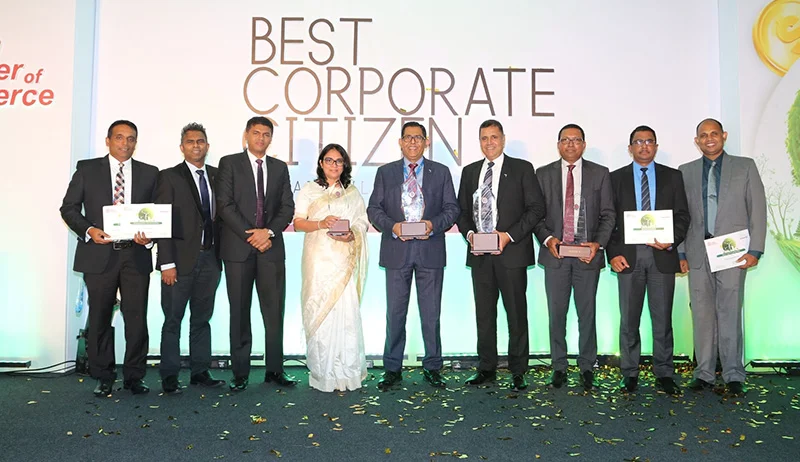Business
IPS’ proposals for Budget 2022 – Part II

Food Security
Ensuring national food security
National food security is not only a question of availability, but includes the other factors like food prices, food usage, and food supply stability. Hence, all these aspects influencing food security should be considered in policy formulation. While the government’s policy framework, ‘Vistas of Prosperity and Splendour’ (VPS) recognises the importance of introducing an agricultural crop management system, there is no proper mechanism to monitor how this will affect food usage, prices, and supply. At present, the farming community is compelled to suffer massive losses during the harvesting season because of the seasonal glut in supply. Meanwhile, intermediaries and the other players in the high end of the value chain gain because they can control prices through controlling supply. This has implications on the food security of the country and the welfare of farmers.
Recommendation
Establish an electronic-based monitoring system for the food systems so that domestic food production, imports, market prices, input availability etc., could be continuously monitored to ensure national food availability and household access to food. A regular monitoring system can safeguard the local food supply from international trade restrictions and possible malpractices by local traders. Give priority to establish a holistic, coherent mechanism to ensure high-quality information is important. This information should be easily accessible across sectors for monitoring risks to food security. Such a system can provide valuable information for policy makers to take action to ensure food security. Big data tools such as satellites, telecommunication networks, sensors, drones, and smartphones have the potential to address the food system challenges by improving availability of information.
Developing e-commerce for food system resilience
As communities are increasingly dependent on markets for their food security and nutrition, properly functioning market chains and the uninterrupted flow of agricultural products are key elements within food systems. Shocks that disrupt market activities such as disasters and pandemics can cause considerable damage to households’ food availability, as well as their access to and utilisation of food.
VPS recognises the importance of introducing a new strategic plan for product marketing including systems of pre-contracts between producers and exporters. However, at present, the farming community is poorly connected with markets and intermediaries gain arbitrage opportunities while rural producers receive lower prices due to the lack of market information, poor infrastructure, weaker bargaining positions, and lengthy marketing channels.
Recommendations
IPS proposes to increase the capacity of e-commerce to minimise the problems in food supply chains and to ensure food system resilience. The increased demand for digital marketing platforms during the COVID-19 pandemic could be capitalised to promote the capacity of e-commerce at both ends of the food supply chain. For example: The Govipola Mobile App and the pilot project on Smart Agri Village were funded by EU. Such Information and Communication Technology (ICT) platforms, despite capacity concerns, have already proven useful to increase the resilience of the actors in the food system such as farmers, traders, and consumers.
Further, a mechanism needs to be developed to help connect smallholders to the e-commerce platform to prevent elite capture of the digital marketplace. In this regard, linking farmers’ cooperatives with the e-commerce platform or building Public-Private-Producer-Partnerships (4P) could be crucial. Public investments in developing an e-commerce-platform to create a digital marketplace to connect farmers and markets and to increase the availability of product and price information to buyers and sellers, to improve food availability, and food security while protecting farmer welfare is recommended.
Strengthening the Regulatory and Enforcement Mechanism for Organic Fertiliser Imports
The proposed ban on chemical fertiliser imports will be a significant shock to the agricultural systems of Sri Lanka and most likely will be untenable. Sri Lanka must revisit the import ban before it fails due to its implementation challenges creating massive disruption to the country’s agricultural sector. IPS research suggests that Sri Lanka can adopt a ‘sustainable intensification’ approach that anticipates a gradual reduction of the use of chemical inputs combined with good agroecological production practices, to increase organic fertiliser use overtime. Further to the ban, the government has decided to import organic fertilisers. Unlike inorganic fertilisers, which are inert materials, organic fertilisers are highly environment-specific live materials that could have irreversible environmental repercussions.
Therefore, the regulatory, implementation, and enforcement mechanism of the quality standards must be strengthened with immediate effect (with the coordination of relevant government institutions like National Plant Quarantine Service (NPQS); SLSI; Sri Lanka Atomic Energy Agency; ITI, etc) to ensure that food ecosystems in the country are not adversely affected by introducing organic fertiliser.
Recommendations
Prudent application of a combination of instruments in place of the import ban on chemicals is needed such as tariffs on chemical fertiliser imports, tax concessions/subsidies for local production of organic fertiliser to promote the production and use of organic fertiliser. Along with this, the quality of chemical fertiliser imports needs to be regulated to safeguard local agriculture. Programmes to build awareness on efficient use of organic fertiliser can also help farmers with the shift to organic fertiliser use.
Tobacco Taxes
Streamlining tobacco tax increases
IPS research shows that increasing tobacco taxes has the twin benefits of improving health as well as increasing government revenue. At a juncture when government finances are tight, policy solutions such as taxing tobacco can be leveraged to boost government revenue without threatening economic growth. Increasing tobacco taxes in the forthcoming Budget could raise substantial amounts of additional revenue for the government.
IPS estimates that the government could have earned nearly LKR 20 billion in additional excise tax revenue from cigarettes in 2020, if cigarette taxes had been raised by 10% in line with inflation and streamlined to a uniform tax. This amounts to nearly 1.5% of total government revenue in 2020. A similar revenue gain can be expected from a 10% increase in tobacco taxes this year.
Recommendation
Given that cigarette taxes have not been revised in nearly two years, since December 2019, the government should use this opportunity to raise taxes, to attain the twin benefits of improved health and fiscal outcomes.
SMEs
Developing the creative and cultural industries
Much of Sri Lanka’s creative economy – which comprises of traditional and modern cultural and creative industries – fall into the category of small and medium industries (SMIs). Lack of linkages to connect rural cultural and creative industry artisans with the relevant institutes and public services is an issue, despite programmes to support and encourage creative business activities conducted by different public institutions.
Lack of awareness, lack of coordination among various sectors of government, and limited attention given to emerging cultural sectors – such as fashion designing, software, graphic designing, digital media – are some identified issues in this sector.
Recommendation
Streamlining government programmes relating to creative and cultural programmes and build capacity in public institutions to provide efficient and effective services to artisans in creative industries. The outcomes of initiatives to develop the sector must be monitored and adjusted to improve effectiveness overtime. Special attention needs to be given by public institutions to fill the above-mentioned policy gaps. Proposed actions will attract rural youth into the sector, which will generate new employment opportunities and support the development of the rural sector.
Social Protection
Repositioning social protection
The International Labour Organization (ILO) Social Security (Minimum Standards) Convention, 1952 (No. 102) (ILO C.102) specifies nine key branches of benefits that social security programmes are expected to deliver. These are: medical care, sickness, unemployment, old age benefit, employment injury, family benefit, maternity benefit, invalidity benefit, and survivor’s benefit. Although different social security schemes are available in Sri Lanka to provide some types of benefits under all nine schemes of ILO’s Social Security Convention (ILO C.102), their coverage is very low. Sri Lanka is also yet to ratify the minimum standard in social security as specified in the Convention.
Recommendations
Social security contributions in many countries are channelled to diverse funds for providing various types of social security benefits (i.e., maternity benefits, sickness benefits). Use a similar system to expand life-cycle social security to workers contributing to Employees’ Trust Fund (ETF). IPS calculations show that about 1.5% of the wage bill (or half of the ETF contributions) is sufficient to cover maternity benefits, sickness benefits, and unemployment benefits to meet the minimum requirements specified in ILO C.102 for those contributing to ETF. A further 0.2% of the total wage bill could cover wage support to firms to retain the workers who contribute to ETF in times of disaster. Follow international best practices and optimise the use of ETF funds to provide wider benefits to its contributors. Such a scheme will enable workers to benefit from social security throughout their lifecycle and facilitate the ratification of the ILO C.102 of minimum social security standards. Greater life-cycle benefits will encourage more workers to contribute to ETF. This will have minimum impact on the budget as allocations for the most part will be from the ETF fund. Such a change in focus should be done in concurrence with different stakeholders to maintain transparency and trust.
-END OF PART II-
Read IPS’ Budget 2022 Proposals in Full HERE.
Business
CBSL raises Rs. 120 billion at the T-Bill auction

Average yield rates decline across the board for third consecutive week
Market participants in the secondary market exhibited mixed sentiment, pivoting from the dull sentiment on Tuesday, observing thin trading volumes and limited market activity, according to First Capital Research.
The secondary market yield curve edged down slightly by 5bps across 3M, 6M and 1Yr maturities, following the weekly T-Bill auction results. The Central Bank of Sri Lanka (CBSL) conducted its weekly T-Bill auction on Tuesday, successfully raising LKR 120.0 Bn, with the total offered amount being fully accepted across all maturities, the research organisation said.
The 1Yr bill attracted the most interest, while weighted average yield rates declined across the board for the third consecutive week. The 03M bill closed at 8.62% (04bps), the 06M bill at 8.77% (-04bps), and the 1Yr bill at 8.96% (-06bps).
Amongst the traded maturities, 15.09.27 traded at a range of 9.85% to 9.80% whilst 15.02.28 and 15.03.28 traded in the range of 10.15% to 10.10% and both the maturities 01.05.28 and 01.07.28 traded between 10.05% to 10.03%.
Meanwhile, on the external front, the LKR depreciated against the USD, closing at LKR 295.61/USD compared to LKR 293.17/USD recorded the previous day.
Similarly, the LKR depreciated against other major currencies such as the GBP, EUR, AUD, CNY, and JPY.
CBSL holdings of government securities remained unchanged, closing at LKR 2,515.62Bn on Tuesday.
Overnight liquidity in the banking system contracted to LKR 159.37Bn from LKR 197.51Bn recorded the previous day.
On Tuesday, the stock market experienced a day of volatility, driven by mixed sentiment among investors. The index opened in negative territory but recovered after the first hour of trading, supported by increased activity in the Banking sector and prominent blue-chip stocks, First Capital Research said.
Business
HNB recognised for 15 years of excellence in corporate sustainability at BCCSA 2024

HNB PLC, was once again ranked among Sri Lanka’s Top 10 Best Corporate Citizens at the Ceylon Chamber of Commerce (CCC) Best Corporate Citizen Sustainability Awards (BCCSA) 2024.
Notably, this marks the 15th consecutive year HNB has earned this sought-after distinction, underscoring its enduring leadership in sustainability, corporate responsibility, and governance.
In addition to being placed among the Top 10 Best Corporate Citizens, HNB received three more prestigious accolades at the BCCSA 2024 awards, including recognition under the Triple Bottom Line Profit category, the Category Award for Economic Contribution, and the Best Project Sustainability award.
Commenting on the significance of the Bank’s outstanding performance at this year’s awards, HNB Managing Director/CEO, Damith Pallewatte said: “Our nation has reached a critical juncture. Moving forward, it is imperative that public and private sectors shoulder greater responsibility in the broader national effort to drive inclusive, sustainable development. This award serves as another important validation of HNB’s own efforts to lead this change, and we remain committed to serving as a steadfast partner in progress to all Sri Lankans.”
HNB’s success at BCCSA was attributed to its strategic focus on delivering efficient, ethical, and sustainable banking solutions to all segments of Sri Lankan society. Driven by an unwavering focus on securing equitable local and global partnerships that uplift both the rural and national economy.
Most recently, HNB has championed initiatives in green financing and sustainability, technological innovation, and community development, including facilitation of investments into critical infrastructure, and healthcare.
This includes pioneering initiatives like HNB Sarusara, which aim to transform Sri Lanka’s agricultural sector, boost national food security, and improve livelihoods for farmers across Sri Lanka.
Through the Sarusara Programme, HNB is committed to revitalizing Sri Lanka’s agriculture sector, uplifting rural economies, and enhancing national food security. Since launching in 2024, the programme as already engaged approximately 30,000 agripreneurs across the country by modernizing their agricultural practices and improving business outcomes. It promotes the adoption of cutting-edge agricultural techniques and technologies to enhance efficiency and yields, while supporting market access and export opportunities.
With Sarusara, HNB offers tailored financial products and services specifically designed to meet the needs of agripreneurs, thereby facilitating easier access to funding for agricultural ventures. Additionally, training and skill development are integral components of the program, equipping agripreneurs with the knowledge required to thrive in a competitive market.
Together with an exemplary record on transparency, accountability, and governance, HNB continues to set new benchmarks in banking and corporate excellence.
Business
Healthwashing, farmwashing, greenwashing and even sanewashing

by Sanath Nanayakkare
The UK government has woken up to the practice of healthwashing that some companies indulge in marketing their products by adding certain attributes in the marketing spin, according to an article in the Cambridge dictionary blog.
“Healthwashing is a practice where products such as food and vitamins are labelled in a way that suggests they are healthier than they actually are. By doing this, they increase the price of the product by a significant percentage and prey on the consumers by taking advantage of their health concerns,” it notes.
Delving deeper into the less than honest practice of using the suffix- washing- in marketing spin, the blog points out that Farmwashing is another practice where a company gives the impression that its products come from small, local, family-run farms, when this is not actually the case. Organic veg box company Riverford has teamed up with a group of British farmers to launch a new fairness campaign called “Farmers Against Farmwashing” aimed at exposing misleading supermarket “farmwashing” practices – where major supermarkets use fake farm brands and the overuse of the Union Jack to give shoppers the impression that their products come from quaint British family farms. However, much of the food is increasingly sourced from industrial mega farms or from overseas,”
“Meanwhile, Sanewashing is a practice where journalists or public figures portray someone with extreme ideas or policies as more reasonable and moderate than they actually are, in order to make the person more acceptable to a bigger number of people, The Poynter Institute, a journalism nonprofit, defines “sanewashing” as “the act of packaging radical and outrageous statements in a way that makes them seem normal.” “Sanewashing” is unusual in that it began not with politicians but with journalists, the Columbia Journalism Review suggests, or with people who pride themselves on not using clichés,” it notes.
Last but not least, greenwashing in marketing and advertising involves taking an existing product or service and spinning its environmentally friendly virtues even if there are none. It is hoped that Sri Lankan policymakers will also be alert and aware and watch such trends with the keenest of eyes.
-

 Sports7 days ago
Sports7 days agoSri Lanka to mend fences with veterans
-

 Sports5 days ago
Sports5 days agoPathirana set to sling his way into Kiwi hearts
-

 Opinion7 days ago
Opinion7 days agoIs AKD following LKY?
-

 News3 days ago
News3 days agoOffice of CDS likely to be scrapped; top defence changes on the cards
-

 News6 days ago
News6 days agoSL issues USD 10.4 bn macro-linked bonds
-

 Opinion7 days ago
Opinion7 days ago‘A degree is not a title’ – a response
-

 Editorial6 days ago
Editorial6 days agoRanil’s advice
-

 Editorial7 days ago
Editorial7 days agoLest watchdogs should become lapdogs











